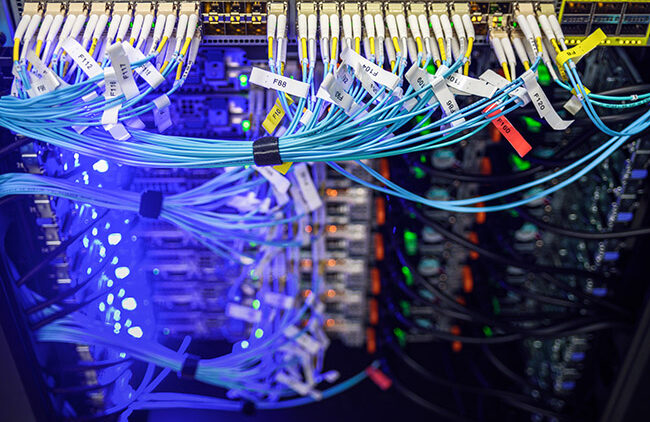Empowering Atlanta’s Businesses: The Transition from T1 to Fiber Optic Connectivit
In the heart of Atlanta, where the pulse of commerce beats strong, and the demand for technological advancement never ceases, business owners are increasingly faced with a pivotal decision regarding their internet connectivity. The evolution from traditional T1 lines to the superior bandwidth and reliability of fiber optic connections is not just an upgrade—it’s a transformative shift that could redefine how Atlanta’s businesses operate.
The Backbone of Business Connectivity: Understanding T1 Lines
For years, T1 has been the backbone of business internet connectivity, providing a reliable, albeit limited, bandwidth for daily operations. However, as businesses grow and technology progresses, the limitations of T1 lines become apparent. Applications demand more bandwidth, and large file transfers become more common, often resulting in increased costs for businesses trying to keep up.
Stepping into the Future: The Advantages of Fiber Optic Technology
Enter the era of fiber optics, a technology that promises to alleviate these bandwidth bottlenecks and offers an unprecedented level of reliability and speed. Fiber optic connections are not just an upgrade from T1; they are a leap into the future of business connectivity.
One of the most significant advantages of fiber optics is the Service Level Agreement (SLA), which accompanies business-level connections. This SLA guarantees an uptime of 99.99%, ensuring your business remains online and operational. In the rare event of an issue or outage, dedicated technicians are committed to resolving the problem within 4 hours. This level of service is unparalleled in the industry and gives businesses the peace of mind that their operations will continue smoothly, with minimal interruption.
Flexibility and Speed: The Hallmarks of Fiber Connectivity
The speed and flexibility offered by fiber optic connections are unmatched. Unlike traditional T1 circuits, which can take up to 30 days for a bandwidth upgrade, fiber connections can be enhanced in a few days. This agility is crucial in today’s fast-paced business environment, where quickly adapting to new demands can be the difference between leading the market and falling behind. Fiber optics with potential speeds exceeding 1 Gigabyte per second open a world of possibilities for data transfer and online operations.
Embracing Fiber: A Smart Business Decision for Atlanta
In Atlanta, a city known for its dynamic business landscape and technological innovation, the shift toward fiber optics is not just a trend—it’s a necessity. The city’s infrastructure constantly evolves, with new fiber networks being laid daily. This expansion presents a golden opportunity for businesses to future-proof their operations and embrace fiber optics’ advantages.
Making the switch to fiber is more than upgrading your internet connection; it’s about investing in your business’s future. With guaranteed uptime, rapid service response, and the flexibility to increase bandwidth as needed, fiber optics offer a level of service that traditional T1 lines cannot match.
If you’re an Atlanta business owner contemplating this crucial upgrade, now is the time to act. Understanding the options available to you and their benefits is the first step towards transforming your business’s connectivity and ensuring its success in the digital age.
At Progressive Office Cabling, we’re more than just a service provider; we’re your partner in technological advancement. Our team of experts is ready to discuss your current network setup and explore tailor-made solutions that meet your unique business needs. Don’t let outdated technology hold you back. Contact us today and take the first step towards unlocking your business’s full potential with the power of fiber optics.

